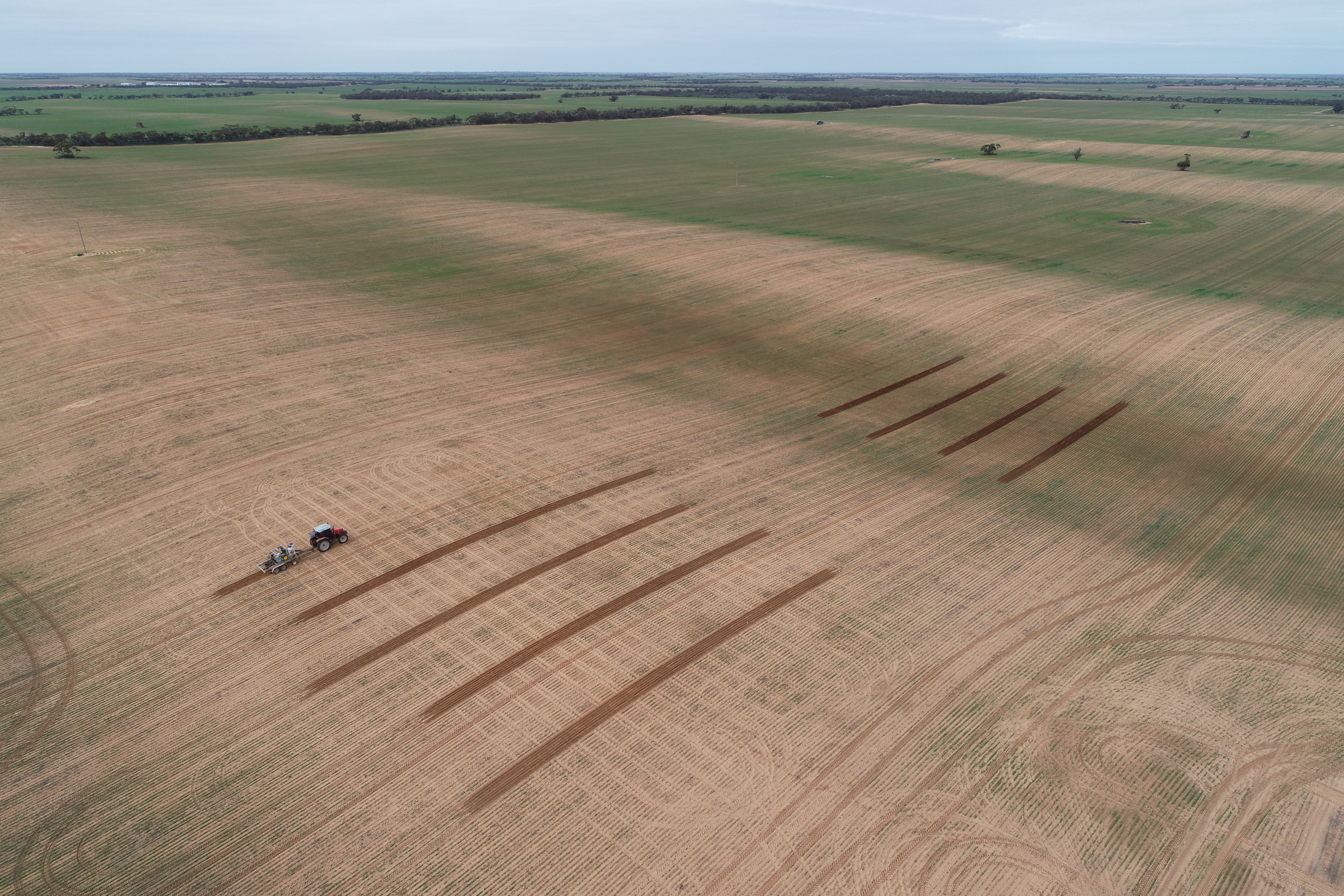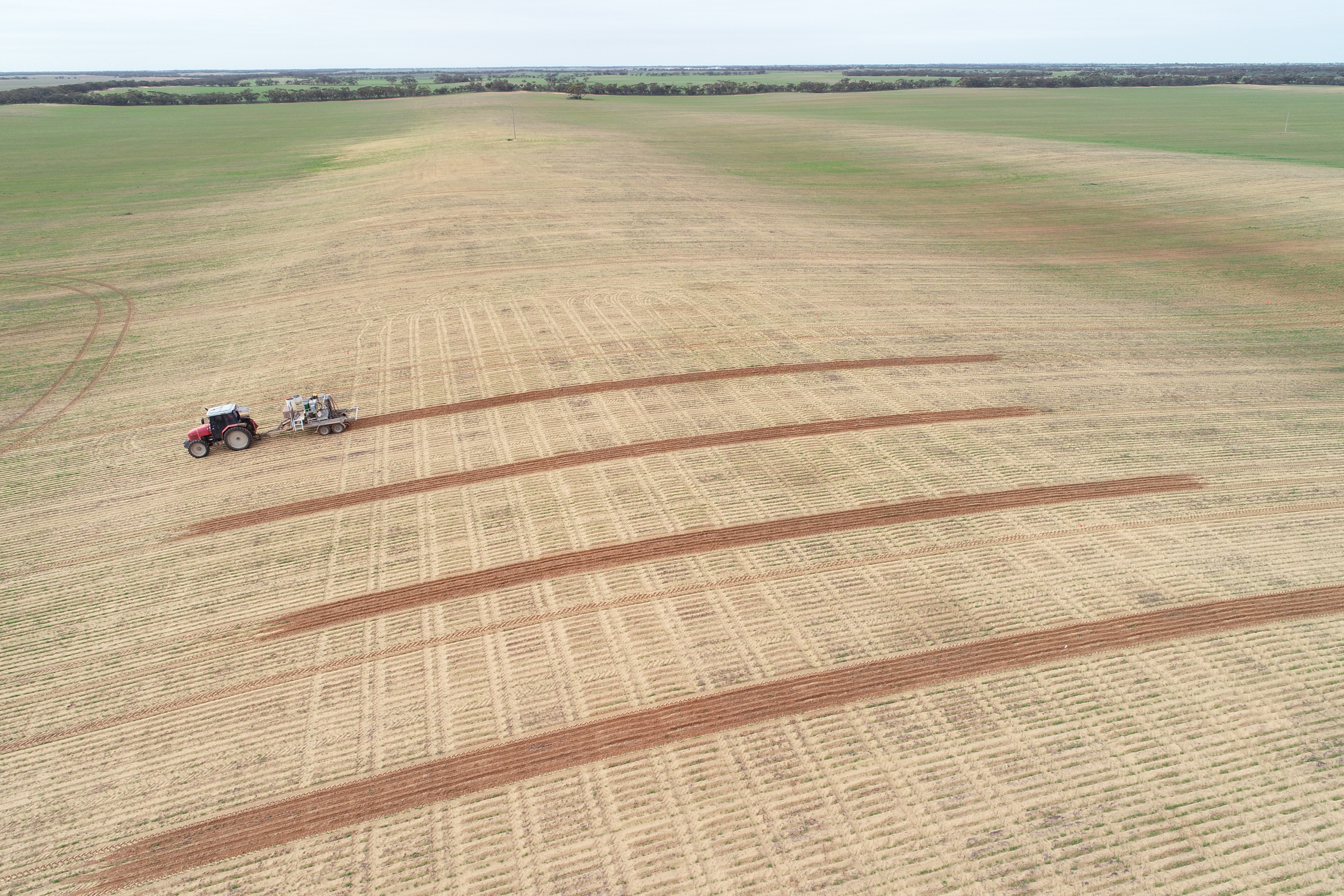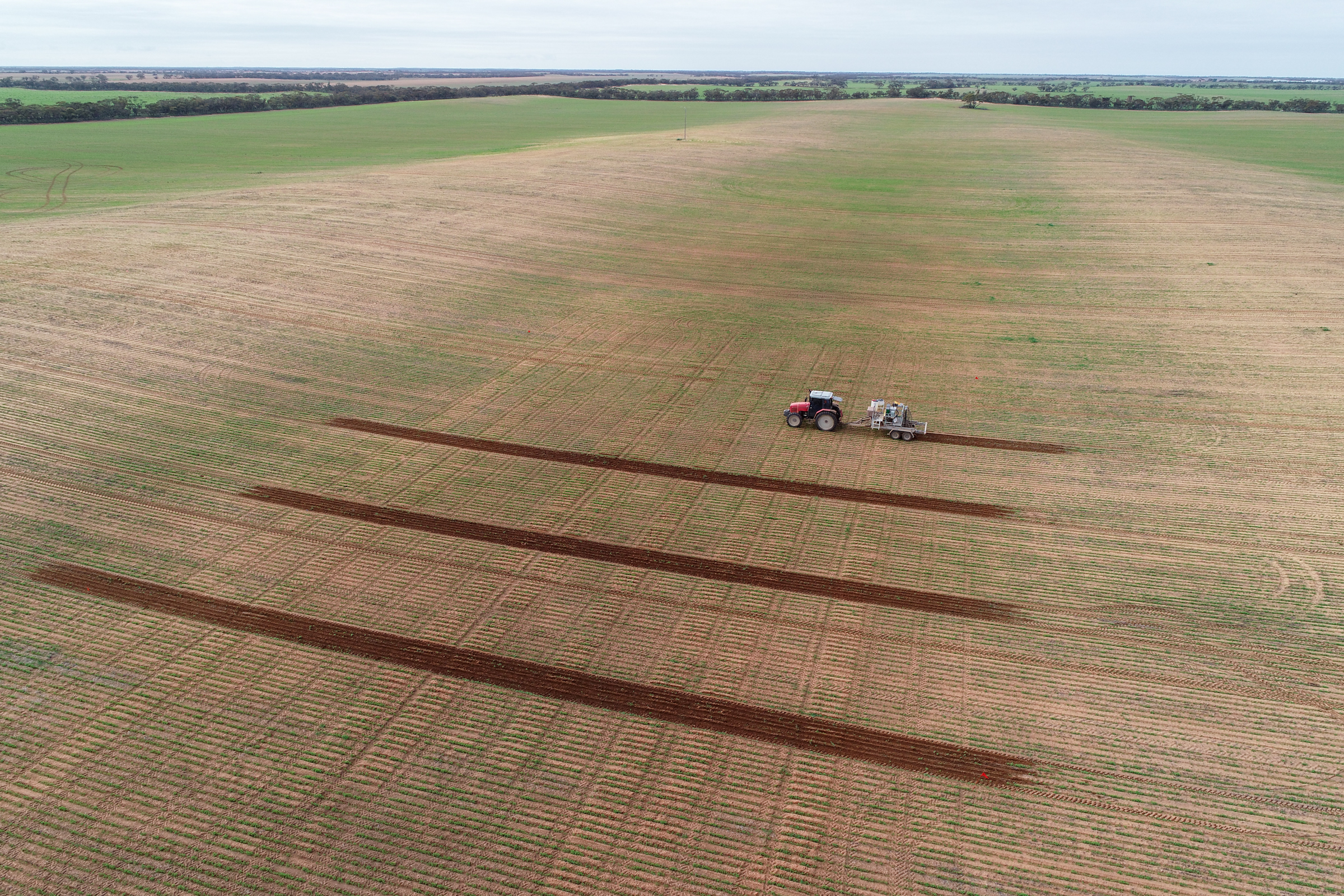Background
The risk of damage to pulse crops from pre-emergent herbicides is high on deep sandy soils such as encountered in the Mallee.
In 2021 Syngenta released Reflex (240 g/L Fomesafen) which is a new pre-emergent herbicide recommended for pulse crops. However there is still concern that this new product is still a risk to sensitive crops such as lentils when applied to sandy soils.
Furthermore a Southern Pulse Agronomy trial conducted in 2019 demonstrated less crop damage when the soil was deep ripped and this will be regulated in the trial to see if this outcome is replicated.
Method
This trial aims to compare the efficacy and safety of pre-emergent herbicides (Fomesafen, Terbuthylazine and Metribuzin) when applied lentils grown on sandy soils and to determine if deep ripping affects the crop safety of these herbicides.
This trial has also had deep ripping to target depth of 50cm with Tilco A66 tines spaced at 56 cm apart compared to no ripping.
This has been established within a field near Speed in the Central Mallee twice, once on a sandy soil hill and replicated on a sandy soil flat. Each plot within both soil types has been replicated four times.
Pre-emergent herbicides applied to both ripped and unripped Lentil plots
| Untreated Control (UTC) | Terbyne Xtreme 430 g/ha |
| Reflex 0.5 L/ha | Terbyne Xtreme 860 g/ha |
| Reflex 0.75 L/ha | Metribuzin 130 g/ha |
| Reflex 1.5 L/ha | Metribuzin 180 g/ha |



